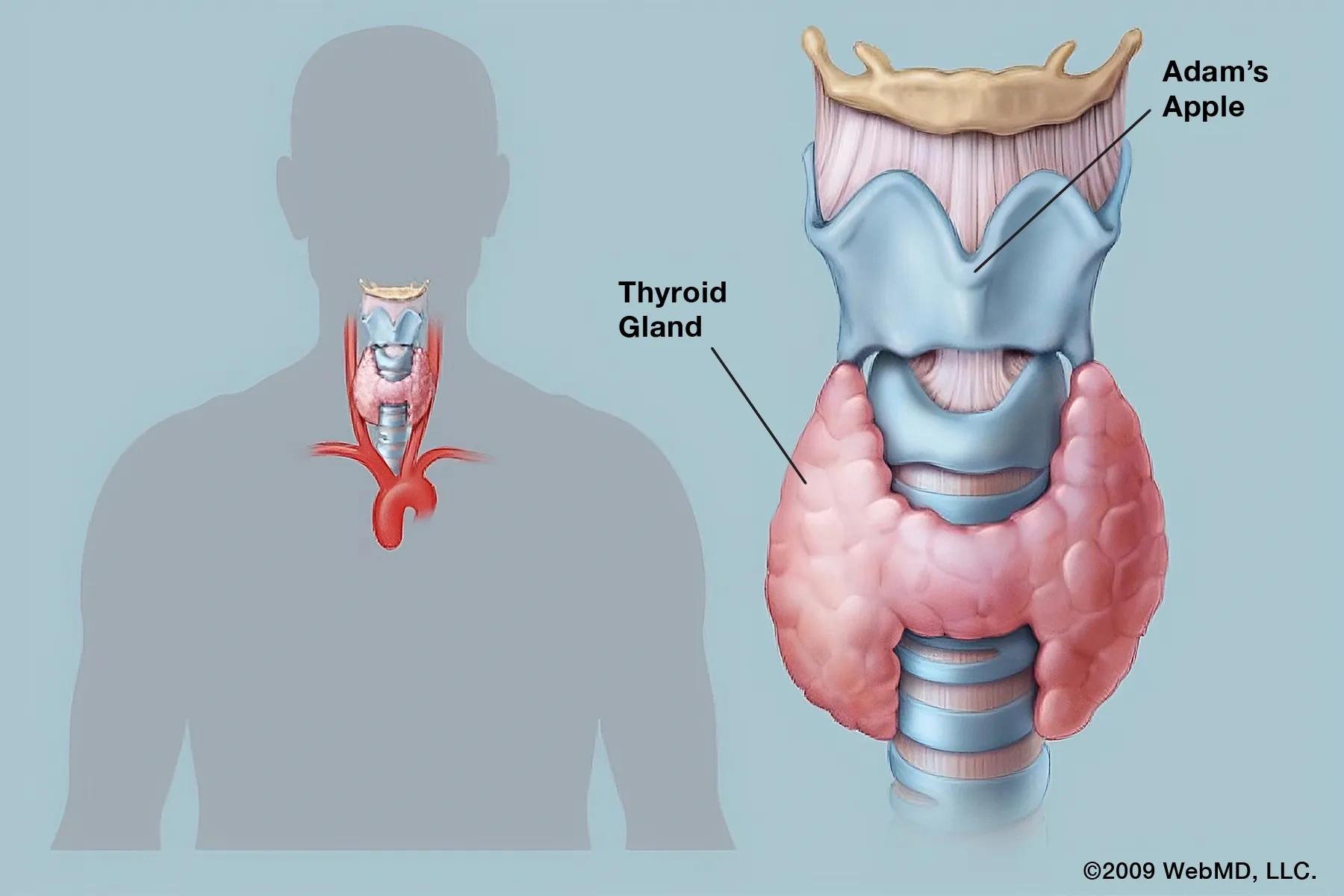
Let’s Bust a Health Myth
I keep hearing people shrug off Graves’ disease. “Oh, it’s just thyroid stuff. Annoying, but not dangerous, right?” If I had a dollar for every time someone said that… Look, I get it—thyroid talk sounds super boring and remote, like something old aunts complain about. But here’s the wild truth: untreated Graves’ disease can flip from “annoyance” to “life-altering” way faster than you’d expect.
If you’ve ever found yourself doom-scrolling trying to figure out can Graves’ disease kill you, or if you’re already diagnosed and wondering what happens next, you’re in the right cozy, slightly messy, and very real place. Pull up a chair and let’s talk straight.
Not Just “Busy Thyroid”
Here’s the deal. Graves’ disease is your immune system going a bit haywire, attacking your thyroid and making it pump out too much hormone. Sounds dry, but the ripple effect is anything but. Have you ever felt like your body’s stuck on fast-forward—heart pounding, sweat pouring, hands shaking, and you’re dropping weight even when eating double? You’re not crazy. You’re not lazy. That’s classic Graves’—and it’s sneaky.
I’ll be honest: when my cousin Lydia got diagnosed, she thought she just needed more coffee or a better calendar app. Little did she know, her immune system was causing all that mayhem, not her busy schedule. It’s the kind of thing that messes with not just your energy, but your heart, bones, and even your eyes. Things can get hairy if you ignore it, but, spoiler: most folks with treatment live just as long as anyone else. Still…that “if” matters a ton.
So…Can Graves’ Disease Kill You?
Here’s the slightly uncomfortable but super important truth: no, Graves’ itself doesn’t knock you out out of nowhere. But—big but—left untreated, it can snowball into severe complications that can be deadly. We’re talking heart problems, brittle bones, and sometimes a total crisis called thyroid storm. Suddenly, not so boring, huh?
And yet, calm yourself a little: according to thorough research on Graves’ disease outcomes, your overall mortality risk isn’t higher than average if you manage it. With proper care, life expectancy is pretty much normal. Want to see some real numbers and life expectancy specifics? Check out how long can you live with graves’ disease—it’s eye-opening and oddly comforting.
Still, I won’t sugarcoat the bad stuff. Let’s look at what “worse-case scenario” really means, because fear thrives in the unknown.
What’s the Worst That Can Happen?
Untreated Graves’ is kind of like ignoring a smoke alarm because “maybe it’s just toast.” Most days it’s fine…until it isn’t.
- Thyroid storm: This is the big, rare, but very real danger. Picture your body’s engine revving way, way past redline—sky-high fever, wild heartbeat, confusion. Without a hospital and fast action, it actually can be fatal. (Found out about this while nervously Googling at 2 AM—turns out, most deaths tied to Graves’ are because of this very situation. But again, rare, and almost always when someone hasn’t been treated at all.)
- Heart failure or arrhythmias: If your heart is forced to sprint non-stop for months, it gets tired—sometimes dangerously so. Older folks or anyone with heart issues need to watch this extra closely.
- Stroke risk: The fast heart rate means your blood could clot in weird places, causing potential strokes. Yikes.
- Brittle bones (osteoporosis): Excess thyroid hormone chews through your bones faster. Doesn’t sound fatal, but hip fractures—especially in your golden years—can shorten lives.
Now, not to freak you out, but there’s even a published case of sudden death associated with undiagnosed Graves’ (see this published report). Moral of the story? Denial is not your friend.
Graves’ Complications – At a Glance
| Complication | Why It’s Dangerous | How Common? |
|---|---|---|
| Thyroid storm | Life-threatening, high fever/confusion | Rare (<2%) |
| Heart problems | Heart failure/arrhythmia | Uncommon, but risk rises if untreated |
| Brittle bones | Fractures, frailty | Common (especially older women) |
| Eye disease | Vision loss if severe | 1 in 3 have symptoms, but vision loss less common |
Spotting Danger Before It Escalates
So how can you tell if you’ve moved from “extra hungry and buzzing” to “call 911 now”? Symptoms can blur with regular anxiety or stress, so here’s a simple litmus test:
- Is your heart racing even when you’re binge-watching Netflix?
- Are you sweaty, shaky, or jumpy for no real reason?
- Feeling breathless, weak, or confused—like, really off?
- Sudden bulging eyes, double vision, or trouble closing your eyelids?
Any of these, and you should grab your doc (or, honestly, an ER if you feel faint or delirious). Better to “overreact” than under-react with this stuff. Lydia, my cousin, only took herself seriously after she almost fainted folding laundry… Go figure.
Is Graves’ Disease Curable, or Is It a Life Sentence?
Let’s tackle another search query while we’re here: Can Graves’ disease be cured? The honest answer? Sometimes, but “remission” is a better word. That means your thyroid chills out and symptoms go away—either naturally (rarely), with meds, or after radioactive iodine or surgery.
For full scoop, can Graves’ disease be cured is a natural place to start. Half of people can get their Graves’ into remission, but some have it come back years later. Not fair, but that’s autoimmune stuff for you.
Treatment: Your Survival Kit
Let’s break down the options quickly and honestly…
- Anti-thyroid meds: First-line treatment for most in the U.S. Methimazole and propylthiouracil are the main ones. You might need them for a year (sometimes double), and about half the time your symptoms stay away. Side effects? Rash, joint pain, sometimes serious stuff like liver issues—but rare (see the Mayo Clinic’s rundown).
- Radioactive iodine (RAI): This is like sending tiny demolition experts into your thyroid. Destroys overactive tissue—but you’ll probably need thyroid hormone pills after. Some worry about eye symptoms getting worse, but that’s case by case.
- Surgery: Sometimes considered for very large goiters, failed meds, or pregnancy complications. Surgeons remove some or all of your gland. Again, lifelong pills needed after, but you sidestep the wild hormone swings.
Which is best? There’s honest debate (here’s a doc’s perspective). The key is picking what matches your life and health needs. Some folks go med route for hope of remission, others want a “definitive” fix with RAI or surgery.
Nobody told me this, but: For some, after RAI or surgery, managing hypothyroidism (slow thyroid) is more predictable than battling constant highs and lows. Thyroid pills, daily, for life—not ideal, but a lot easier than ER visits, let me tell you.
Quick Table: Graves’ Treatments & What to Expect
| Treatment | Pros | Cons | Remission Rate |
|---|---|---|---|
| Anti-thyroid meds | No needles, non-permanent | Possible relapse, mild-to-serious side effects | ~50% |
| Radioactive iodine | Definitive cure, outpatient | Permanent hypothyroid, possible eye risk | Near 100% (but then hypothyroid) |
| Surgery | Definitive, instant results | Surgical risks, permanent hypothyroid | Near 100% (but then hypothyroid) |
How Long Can You Live With Graves’?
This is one of those “wait, am I dying?” questions you’ll want to whisper to your doctor. Good news: If treated, your outlook is pretty much as rosy as anyone else’s. Several large-scale reviews (like this overview from StatPearls) show no difference in overall mortality for people whose Graves’ is managed and monitored regularly. But, and it’s big: every year untreated raises the risk of complications. Don’t feel silly for needing regular check-ups and labs. It’s not hypochondria—it’s smart self-care.
The trend is clear: the answer to “how long can you live with Graves’ disease” is “decades, and often just as long (or longer) than people without it”—but only with some attention and action.
Don’t just take my word—see the stories and data in how long can you live with graves’ disease.
Lifestyle: Your Secret Weapon
You can’t meditate your way out of autoimmune disease, but a few tweaks help you dodge flare-ups and feel less “out of control.” Small things—like eating enough calcium, avoiding high-iodine supplements, steady exercise, finding stress outlets—can make a daily difference. (My own trick: yoga when stress gets wild, and an alarm on my phone for meds!)
And honestly? Asking for help—friends, family, or a pro—is a power move, not a weakness.
Daily Wins To Keep Graves’ in Check
| Habit | Why It Helps |
|---|---|
| Consistent meds (same time daily) | Stabilizes hormone levels |
| Eating enough protein/calcium | Protects bones from loss |
| Managing stress (meditation, walking) | Lessens symptom flares |
| Regular check-ins and labs | Catches problems early—prevention = less drama |
If you’re looking for more info about reversal and remission, you’ll love reading can Graves’ disease be cured—it goes deeper into the whole lifestyle piece.
Real-Life Resilience: Moussa’s Story
Let’s wrap up on a hopeful note. In 2022, pro footballer Moussa Diarra got slammed by Graves’. He was, understandably, terrified—not just for his health, but his entire career. Imagine having a body trained for peak performance suddenly short-circuiting. At first, he pushed through fatigue and rapid heartbeats, thinking “athletes just work harder.” But after collapsing during training, doctors diagnosed him and started treatment ASAP.
What happened next? With the right mix of meds, rest, and gradual getting back on the pitch—he returned stronger, wiser, and now tells everyone he meets not to brush off weird symptoms. If even a pro can get sidelined by Graves’, it’s proof you’re not “weak” if this hits you. It’s just biology, and you can find your way back.
Wrapping Up: Your Power Move
So—can Graves’ disease kill you? In almost all cases, with treatment: no. But left to its own devices? The disease can absolutely turn dangerous, even deadly. The key? Never wait for extreme symptoms—treat early, stick with it, and ask questions as you go. Use every tool (meds, surgery, lifestyle, support).
Remember to check reliable answers to can Graves’ disease be cured and how long can you live with graves’ disease if you’re craving the science-y details or a real patient’s voice.
Don’t just read—reach out. Chat with your doctor, share how you’re feeling, and don’t brush off “weird” symptoms as being stressed or “just busy.” Your future self will thank you. Take care—you’ve got this.


















Leave a Reply
You must be logged in to post a comment.